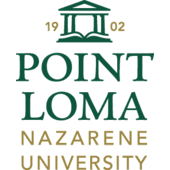
Guide to MBA Programs for Military and Veterans
A Master of Business Administration (MBA) is a postgraduate degree offering advanced, comprehensive training in business principles and leadership skills. Most major universities and colleges provide MBA programs, which last one to two years.MBA programs may include core courses in accounting, management, finance, marketing, business law, and management training.
They typically focus on leadership, planning, business strategy, organizational behavior, and all aspects of business management. The specialized skills and knowledge gained from an MBA can significantly increase lucrative career advancement opportunities.
Admission to an MBA program generally requires taking the Graduate Management Admission Test (GMAT) and meeting the specific selection criteria of the program, which is different from school to school.
What Are the Benefits of an MBA?
An MBA allows graduates to either accelerate their career progress in their current field or substantially shift to a new career path with an enhanced business skill set.With an MBA, students gain a deeper understanding of global business operations, improve their communication skills, and build valuable connections with industry professionals. Finally, they’ll develop excellent time management skills from balancing their academic, professional, and personal responsibilities.
Types of Military-Friendly MBA Programs
Which MBA approach is right for you?Full-Time MBA: This options is good for professionals who want to progress in existing careers. This option features full-time learning and is an intensive program.
Executive MBA: This military MBA option is appropriate for mid-level executives and higher who want to acquire higher business leadership skills without interrupting their current jobs.
Professional MBA: This MBA option for military and veterans is designed for those who need to attend the program as part-time students and maintain a fulltime job.
Online MBA: This is a good choice for the self motivated student who needs to attend the program remotely with no in-person learning.
Full-Time MBA Programs
Two-Year MBA Programs
A two-year MBA requires full-time attendance at school. During their first year, students follow a core curriculum that provides a comprehensive foundation in key business areas.This may include coursework in accounting, marketing, operations management, organizational behavior, economics, and strategy. These subjects prepare students for more specialized courses and electives in their second year.
One-Year MBA Programs
In a one-year MBA program, students engage in an intensive and accelerated curriculum that covers business disciplines like those mentioned above but at an accelerated pace.The program often emphasizes practical, real-world applications and may include projects. It is one year long and aims to equip students with what they'll need to advance their careers in a shorter period.
Schools with Full-Time MBA Programs
- University of Michigan (Ann Arbor): The University of Michigan’s Roth School of Business is a Yellow Ribbon-approved school and is approved for Tuition Assistance.
- University of Chicago: The University of Chicago Booth School of Business is a Yellow Ribbon-approved school and is approved for Tuition Assistance.
- New York University: NYU’s Stern School of Business is a Yellow Ribbon-approved school approved for Tuition Assistance.
Part-Time MBA Programs
Students who wish to continue working while attending school can pursue a part-time MBA program. This program offers flexibility in how quickly a student moves through the program and how many courses they can take simultaneously. Part-time programs may be a better option for those wanting to study at their own pace and offer the flexibility of evening or weekend classes.Schools with Part-Time MBA Programs
- University of Southern California: The USC Marshall School of Business is a MyCAA-approved school approved for Tuition Assistance.
- Boston College: The Boston College Carroll School of Management is a MyCAA-approved school approved for Tuition Assistance.
- Georgetown University: Georgetown University McDonough School of Business is a Yellow Ribbon-approved school and is approved for Tuition Assistance.
Executive MBA Programs
An Executive MBA (EMBA) program is designed for experienced professionals and senior executives looking to enhance their leadership skills and strategic thinking while continuing to work full-time. Classes are usually scheduled on weekends or in intensive modules to accommodate the student's busy schedule.EMBA programs are open to candidates with significant professional experience focusing on more advanced topics, such as leadership development.
Schools with Executive MBA Programs
- Ohio State University: OSU’s Fisher College of Business is a Yellow Ribbon-approved school approved for Tuition Assistance.
- University of California Los Angeles (Anderson): UCLA’s Anderson School of Management is a MyCAA-approved school and is approved for Tuition Assistance.
- University of Texas: University of Texas McCombs School of Business is a Yellow Ribbon-approved school approved for Tuition Assistance.
Filters
Degree Level
Search and select multiple degree level.
Search and select multiple degree level.
Degree Program or Area of Study
Search and select multiple area of focus.
Search and select multiple area of focus.
Where do you plan to study?
Type of School
Years Offered
Campus Setting
Size of School
Gender-Specific
Religious Affiliation
Religious Affiliation
Ethnic Affiliation
Financial SupportAcademic SupportPrograms
Online MBA Programs
An online MBA can be two-year, one-year, or part-time, but allows students to attend school remotely. This MBA program gives students even greater flexibility with their courses.Schools with Online MBA Programs
- University of California Davis: UC Davis School of Business is a Yellow Ribbon-approved school approved for Tuition Assistance.
- Tulane University: Tulane University's A.B. Freeman School of Business is a Yellow Ribbon-approved school.
- Carnegie Mellon University: Carnegie Mellon’s Tepper School of Business is a Yellow Ribbon-approved school and is approved for Tuition Assistance.
Global (International) MBA Programs
An International MBA (IMBA) program prepares students for global business careers, emphasizing international perspectives and cross-cultural management. International study trips, exchange programs, and internships provide hands-on experience, while courses may cover international finance, global marketing, and cross-cultural communication.Schools with Global (International) MBA Programs
- Harvard University: The Business School at Harvard University is a Yellow Ribbon-approved school approved for Tuition Assistance.
- Florida International University is approved for Tuition Assistance and is a MyCAA school.
- Cornell University: The Samuel Curtis Johnson Graduate School of Management is a Yellow Ribbon-approved school approved for Tuition Assistance.
Specialized MBA Programs
While management and finance courses are the norm in an MBA program, many allow students to concentrate their studies in specific industries. For example, students may focus on different concentrations within their MBA, such as criminal justice, education, tech, law, or hospitality. Some MBA programs even offer joint degrees or a dual MBA program.A dual MBA program allows students to complete two master's programs quickly, as core courses in one program can double as electives in another.
MBA Program Career Outlook
According to the Bureau of Labor Statistics, the average annual compensation for MBA graduates was over $116,000 annually. Of course, this depends on the state, years of experience, industry, company, and specific job role. Most total pay packages range between $102,000 and $191,000 per year.Many MBA careers are experiencing a growth rate that is higher than average for all occupations in the U.S. For instance, employment for medical and health service managers will increase by 28 percent by 2032. Financial management positions will grow by 16 percent, while human resources (H.R.) managers will see a growth rate of 5 percent during the same period.



















